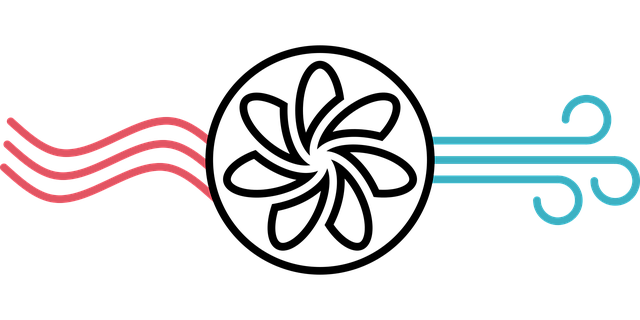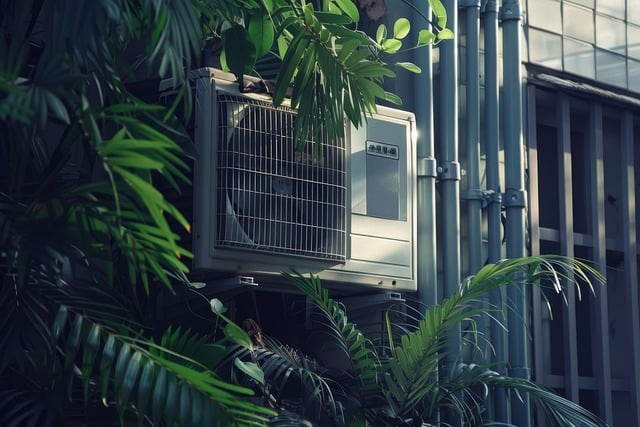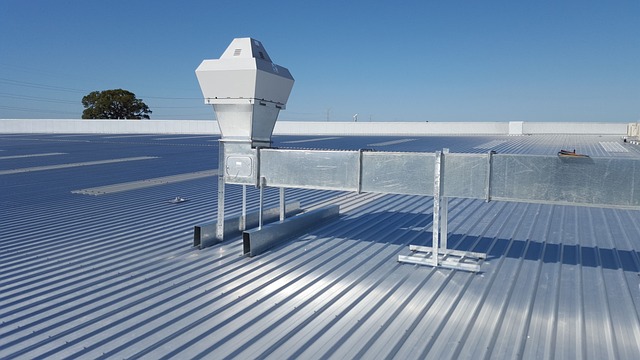To maintain optimal energy efficiency in Denver's diverse climate, regular HVAC system maintenance is crucial. A professionally tuned HVAC system can significantly reduce energy consumption and costs while extending the lifespan of your heating and cooling equipment. Homeowners should engage a certified Denver HVAC expert for a detailed system evaluation, which includes inspecting thermostat settings, air filters, ductwork, and insulation to ensure peak performance. Key actions like regularly cleaning air filters can prevent energy waste from airflow restrictions. Proper insulation is essential for regulating your home's temperature, reducing reliance on the HVAC system. Additionally, a comprehensive energy audit is recommended to assess the efficiency of your heating and cooling equipment, including the furnace, air conditioner, and heat pump, and to evaluate the home's envelope, which includes insulation, windows, doors, and ductwork. A certified Denver HVAC professional can perform this audit, offering tailored recommendations to enhance your home's energy efficiency and contribute to Denver's collective reduction in energy usage. Regular adherence to a maintenance schedule is essential for sustaining high performance from your HVAC system year-round.
Ensuring energy efficiency within residential spaces is more than a sustainability goal—it’s an imperative for modern living. In Denver, where climate conditions demand efficient heating and cooling systems, the role of HVAC systems in conserving energy cannot be overstated. This article delves into the critical aspects of conducting thorough inspections to enhance the energy performance of these systems. From the intricacies of a step-by-step guide for Denver HVAC inspections to the key components and best practices for energy audits, homeowners and professionals alike will gain valuable insights to optimize their homes’ energy usage.
- Maximizing Energy Efficiency: A Step-by-Step Guide to Denver HVAC Inspections
- Essential Components and Practices for Effective Energy Audits in Denver Residential HVAC Systems
Maximizing Energy Efficiency: A Step-by-Step Guide to Denver HVAC Inspections

When prioritizing energy efficiency, particularly in Denver’s diverse climate, regular inspections and maintenance of your HVAC system are paramount. A well-maintained HVAC system can significantly reduce energy consumption, lower utility bills, and extend the lifespan of your equipment. The first step in this process is to schedule a comprehensive inspection with a certified Denver HVAC professional. They will assess your system’s condition, identify potential issues, and recommend necessary repairs or upgrades. During the inspection, the technician will examine critical components such as the thermostat settings, air filters, ductwork, and insulation to ensure they are all functioning optimally. For instance, a clean air filter can restrict airflow, leading to inefficiency and increased energy use. Similarly, proper insulation is crucial for maintaining desired temperatures within your home, thus reducing the strain on your HVAC system. After the initial assessment, the technician will provide a detailed report outlining their findings and suggestions for improvements. This may include adjustments, repairs, or replacements to enhance energy efficiency. Subsequently, it’s advisable to implement these recommendations promptly and adhere to a regular maintenance schedule to sustain peak performance of your Denver HVAC system throughout the year.
Essential Components and Practices for Effective Energy Audits in Denver Residential HVAC Systems

In conducting energy audits on Denver residential HVAC systems, it is imperative to focus on several key components to ensure a comprehensive evaluation of energy efficiency. The first component involves a thorough inspection of the heating and cooling equipment, which includes the furnace, air conditioner, and heat pump. These units are often the most significant energy consumers in a home and must be assessed for their operational efficiency, including checking for proper sizing, maintenance history, and any signs of wear or damage that could affect performance. Additionally, evaluating the system’s thermostat settings and its compatibility with smart technology can provide valuable insights into potential energy savings.
Another critical aspect of a Denver HVAC energy audit is the examination of the home’s envelope, including insulation, windows, doors, and ductwork. Properly insulating a home reduces heat loss in the winter and heat gain in the summer, leading to more efficient operation of the HVAC system. Sealing and insulating ducts can prevent energy waste due to air leaks, which is a common issue in many homes. Moreover, assessing window efficiency and ensuring that they are well-sealed can significantly impact the overall energy consumption of a household. By focusing on these essential components and adhering to best practices during energy audits, HVAC professionals can provide Denver residents with tailored recommendations for enhancing their home’s energy efficiency.
Denver homeowners can significantly reduce their energy consumption and costs by adhering to the outlined steps for maximizing energy efficiency in HVAC systems. By understanding the essential components and best practices for conducting thorough energy audits, residents can ensure their homes maintain optimal performance levels. The guidance provided in this article serves as a pivotal tool for Denver’s commitment to sustainable living and energy conservation. Regular inspections and maintenance of HVAC units are not just about saving on utility bills but also play a crucial role in preserving the environment by decreasing overall energy usage.
